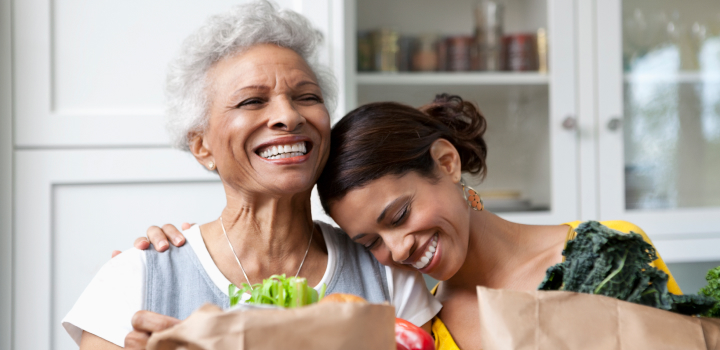
Now more than ever, each South African needs to do their part to make sure we keep ourselves and each other safe and healthy. Don't buy the whole store - here's how you can choose healthy food that will keep, and store it correctly to avoid waste.
Discovery Vitality dietitian Terry Harris shares advice on how to shop smart, buy healthy food that will last longer, and store food correctly.
How to shop smart - buy only what you need
"While it's important to plan ahead and think what food you will need in the next few weeks, buying more than what you need can mean others will be left without," Terry explains. "It can also lead to unnecessary food waste - we need to be considerate and responsible with how we shop."
Here's how:
- Buy a mix of fresh, frozen, dried and canned foods to add variety. Do NOT empty the shelf of certain items - you'll be depriving someone else and you'll end up losing most of it if there's loadshedding.
- Buy a variety of different foods within the same food group. For example, buy various types of wholegrains such as brown rice, bulgur wheat, barley, quinoa, whole wheat pasta, oats, popcorn kernels instead of buying plenty of the same item.
- Choose fresh ingredients when these are available and prepare meals such as stews or soups that can be frozen to last longer.
How to choose healthy food that will last longer
Choose a variety of foods within the five food groups for a healthy, balanced diet. These are all food that will last longer than others.
| Dairy |
|
| Protein foods |
|
| Fruits and vegetables |
|
| Carbohydrates |
|
| Healthy fats |
|
How to store food correctly
"Having more food in the house can lead to more waste," Terry says. "It's important to store food correctly to extend its shelf life, prevent food poisoning and to save on limited fridge space." Here are 5 ways to do just that:
- First in, first out: Check the expiry dates and use older food first.
- Refrigerate or freeze food high-risk foods like meat, poultry, fish and dairy. Fridges should be kept at 5°C or below and the freezer temperature should be at -18°C.
- Some fruit and vegetables need to be kept at room temperature such as avocados, unripe bananas, potatoes and sweet potatoes, onions, carrots, garlic and squash. In addition, some of these foods naturally release ethylene gas, which can cause other fruit and vegetables to ripen or spoil more quickly, so are best kept separate
- Remember to store raw food below cooked food to avoid contamination.
- Cool down leftovers as quickly as possible, within 2 hours. Freeze to last longer, or store leftovers in the fridge and eat them within 2 days.
You don't have to go through this time alone. Stay safe with Vitality at Home. In the next few weeks, we'll keep sharing information on how to eat healthily during a pandemic. Visit our dedicated COVID-19 information hub for more.